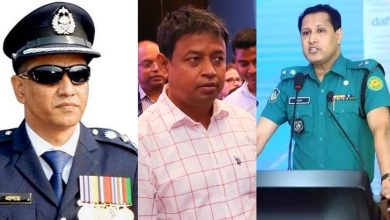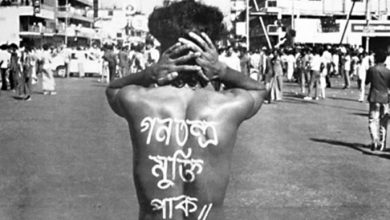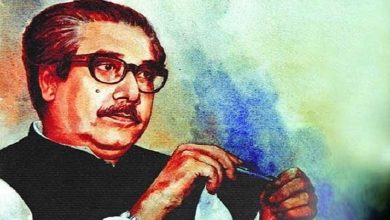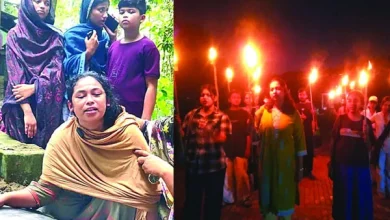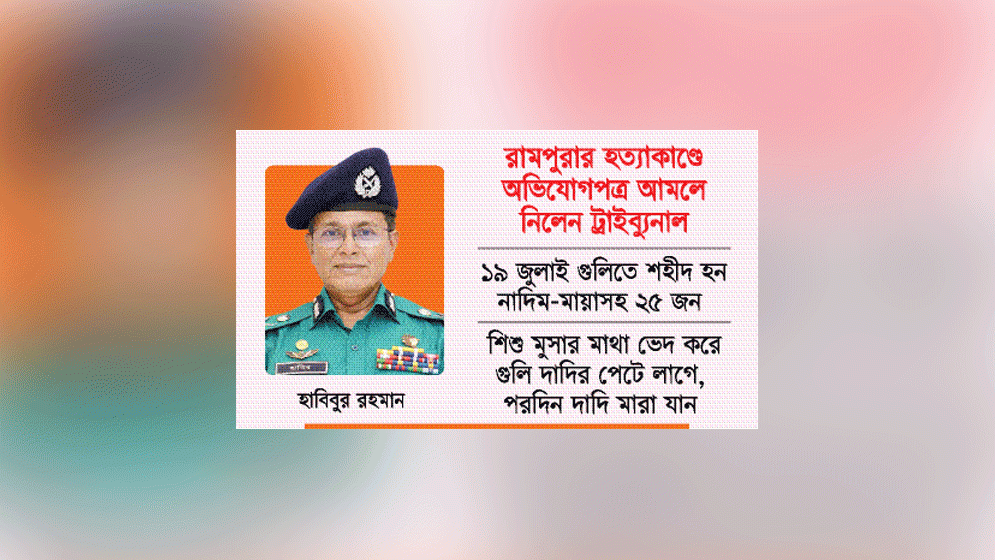How over-investment in Hasina puts India in an unwelcome, but inevitable new reality
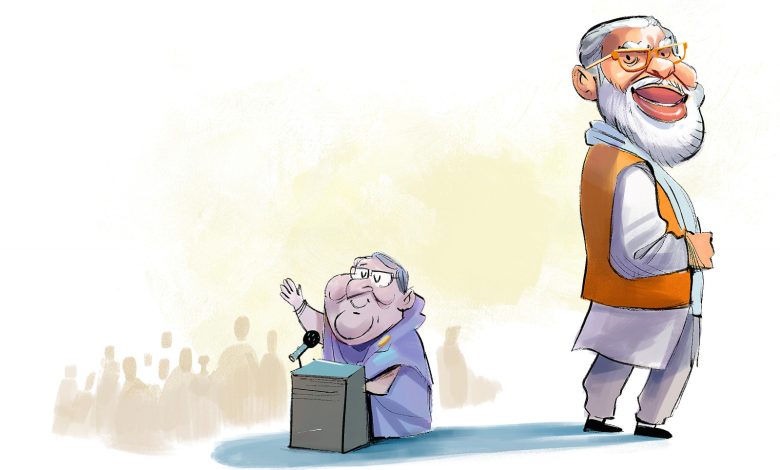
India has nobody to blame except its policy of putting all its eggs in one basket for years and investing in only Hasina for the sake of its regional security interests
The downfall of Sheikh Hasina in an uprising has become a major diplomatic blow to India forcing New Delhi to wake up to a new reality as the bilateral relations between the two countries hit the lowest from an unprecedented level of bonhomie during the rule of Hasina since 2009.
Back in June, just a month and a half ago before her abrupt resignation and taking refuge in India by fleeing Bangladesh, Hasina visited India twice in two weeks in a clear demonstration of her India-first policy which was also lauded by her counterpart Narendra Modi.
“We have met 10 times in the last year. However, this meeting is special because Sheikh Hasina is the first state guest after the third term of our government,” Narendra Modi said at a joint news conference last June when Hasina visited New Delhi.
But everything built in the last one and a half decades collapsed like a house of cards after Hasina’s fall. India has nobody to blame except its policy of putting all its eggs in one basket for years and investing in only Hasina for the sake of its regional security interests.
As such, such an aftermath was inevitable sooner or later.
Except for Hasina’s Awami League, India has long viewed the current Bangladesh opposition and its allies as a threat to its interest and labelled them “dangerous Islamic forces.”
India’s reliance on Hasina grew to an unprecedented level as she cracked down on anti-India militants on Bangladesh’s soil and granted transit rights to secure trade routes to five Indian states which border Bangladesh.
But its role in Bangladesh’s last three elections, which critics view as interference in Bangladesh’s domestic politics, remains glaring evidence of how India steadfastly kept supporting Hasina who ensured her grasp on power by denying people their democratic rights.
Hasina’s return to power in 2009 was a relief for India’s leadership. Hasina too delivered on India’s expectation as she herself claimed: “India should remember forever what her government has given to it.”
As India was enamoured with Hasina, it kept overlooking her widespread misrule and criticism at home and abroad against several stage-managed elections. With both countries frequently declaring ‘reaching new heights’ in bilateral relations, India’s blind support for Hasina, in reality, backfired igniting intense abhorrence toward India in Bangladesh.
And since her fall, India’s leaders and media have been out on a concerted campaign to undermine the students-people upsurge and paint the changeover as a “conspiracy against Hasina” ignoring the reality on the grounds.
India’s Hasina-centric diplomacy goes back decades but only became apparent to all in 2008.

Former prime minister Sheikh Hasina and Indian Prime Minister Narendra Modi shake hands during the bilateral meeting in New Delhi on 8 September 2023. Photo: Collected from Narendra Modi’s X handle
On the morning of 30 December 2008, a pleased Manmohan Singh called and congratulated Hasina who would be his Bangladeshi counterpart in a couple of days as her party had won a landslide on the previous day in a largely free and fair parliamentary election.
The jubilant feeling was borne out of Hasina’s track record. She was mindful of India’s security interest on the eastern border during her first term from 1996 to 2001. That relief offered by Hasina had made India’s leadership obsessed with their ‘friend.’
Manmohan Singh called Hasina again another morning in January 2014 and Narendra Modi did it twice – in December 2018 and in January 2024 – to congratulate Hasina on her election victories.
But Bangladesh was very different in those three mornings, unlike the one on the morning of 30 December 2008.
After every election, the rest of the democratic world such as the United States, United Kingdom and the European Union unequivocally said the elections were neither free nor fair. Even before the elections, they had been criticising the role of the law enforcement agencies and the administration being used in favour of Hasina and her party to skew election results.
But India was the outlier. In each of the three elections, India stood by an embattled Hasina and shielded her from criticism and actions from the rest of the democratic world.
India happy, India not happy
When Hasina bounced back to power after a break of seven years in January 2009 by winning a landslide in the election, India was upbeat in “hailing the return of democracy in Bangladesh.”

India’s Prime Minister Narendra Modi attends a meeting with Russia’s President Vladimir Putin at the Kremlin in Moscow, Russia July 9, 2024. Photo: Sputnik/Sergey Bobylev/Kremlin via REUTERS/File Photo
More than 15 years down the line, when Bangladesh again returned to the path of democracy by toppling the authoritarian ruler Hasina in an unprecedented uprising, India’s leaders were more glum than in a cheerful mood.
Her ouster has freed Bangladesh, its people and the economy from a Kleptocratic regime but it has apparently angered India’s high-profile leaders, from Narendra Modi to Rahul Gandhi, and a section of India’s media.
When the rest of the democratic world is extending their support to Bangladesh helping it recover from a messy economic and governance situation which Hasina left behind as the legacy of her despotic regime, India’s leaders and media cannot find anything to rejoice.
The day after Hasina took refuge in New Delhi, India’s Foreign Minister S Jaishankar,on 6 August in a statement, informed India’s parliament about the situation in Bangladesh, but what he said was only partly true.
In his statement, he focused only on violence by protesters but he did not use a single word about the unprecedented brutalities unleashed on protesters by Hasina and her politicised state apparatus.
Since the election in January 2024, Jaishankar said, there have been considerable tensions, deep divides and growing polarisation in Bangladesh politics. These underlying causes aggravated a student agitation that started in June this year, he said.
“There was growing violence, including attacks on public buildings and infrastructure as well as traffic and rail obstructions. The violence continued through July. Throughout this period, we repeatedly counselled restraint and urged that the situation be diffused through dialogue. Similar urgings were made to various political forces with whom we were in touch,” reads the statement.
On 4 August, the statement said, events took a very serious turn. Attacks on police, including police stations and government installations, intensified even as overall levels of violence greatly escalated. Properties of individuals associated with the regime were torched across the country. What was particularly worrying was that minorities, their businesses and temples also came under attack at multiple locations,” reads his statement.
He did not mention anything about the nature of the January 2024 election in which Hasina’s party won a landslide.
Following the collapse of Hasina’s government, an all-party meeting in Delhi expressed concern over attacks on Hindus and vandalising their homes and temples.
Subsequently, in a phone call with Modi, interim government chief Muhammad Yunus assured him that the safety of Hindus and other minorities in Bangladesh would be ensured.
On 15 August, Narendra Modi expressed concern over the unrest that led to a change of government in neighbouring Bangladesh and the attacks on Hindus and other minorities there. Since the ouster of Hasina, in their first talk at the end of August, Modi raised the Bangladesh issue in discussion with Joe Biden and expressed concern over the security of Hindus.
”The two leaders expressed their shared concern over the situation in Bangladesh and emphasised the restoration of law and order and ensuring the safety of minorities, particularly Hindus, in Bangladesh,” said a readout issued by the Indian Prime Minister’s Office.
India’s opposition leader Rahul Gandhi has said his country is “concerned” about the “extremism” present in Bangladesh, but anticipates the situation will “stabilise.”
He also expressed his interest in collaborating with the current interim government or any future administration, according to the NDTV.
On war footing!
At a joint conference of the top commanders of India’s three branches of the military in Lucknow, India’s Defence Minister Rajnath Singh called for a review of the current situation in Bangladesh.

India’s Defence Minister Rajnath Singh delivers a speech during a ceremony for the delivery of the first Rafale fighter to the Indian Air Force at the factory of French aircraft manufacturer Dassault Aviation in Merignac near Bordeaux, France, October 8, 2019. REUTERS/Regis Duvignau
Rajnath said India is a “peace-loving country” but emphasised the need to be prepared for war in the face of “unforeseen” events in order to maintain peace.
India’s media’s role was more alarming.
Indian media started a concerted misinformation campaign making claims linking China and Pakistani intelligence to Bangladesh protests and exaggerating the scale of attacks on Hindus.
Within hours of Sheikh Hasina fleeing from Ganabhaban, the residence of the PM, reports began to appear in some Indian media outlets that members of Hindu minorities in Bangladesh were being targeted by “Islamist forces.”
Articles and videos containing misleading content emerged across Indian media and social media platforms. A Times of India report claimed that Jamaat-e-Islami, Bangladesh’s biggest Islamist party, “brought down Sheikh Hasina government in Bangladesh.”
Intelligence agencies have identified Pakistan’s ISI and its Chinese patron as key players in agitating protests and subversion that compelled Hasina to flee the country claimed Times of India.
It claimed information reveals the involvement of Islami Chhatra Shibir (ICS), the student wing of Jamaat-e-Islami Bangladesh, in converting protests over quotas into efforts to establish a regime favourable to Pakistan and China, undermining the previously installed Hasina government.
In a report, the ANI news agency quoted a student leader in India as saying the mass uprising was “orchestrated by the enemies of Bangladesh.”
“India should remember forever…”
India and Bangladesh share a 4,100-kilometre-long (2,500-mile) porous border, which is an easy pathway for infiltration, human trafficking and, possibly, terrorist elements. Bangladesh shares the border with the Indian states of West Bengal, Assam, Meghalaya, Tripura and Mizoram.
India has witnessed many ups and downs in the bilateral relation with Bangladesh for decades after the changeover of Awami League regime in August 1975 due to this porous border.
During Hasina’s first term from 1996-2001, the bilateral relationship between Dhaka and Delhi took a new shape, differing from the previous turbulence. India faced security threats again during the past BNP-led government from 2001-2006 when anti-Indian insurgent groups were allegedly given shelter on the soil of Bangladesh.
A sharp spike in militancy during the period was also a matter of concern for India.
In such a situation, Hasina’s return to power in 2009 was a relief for India’s leadership. Hasina too delivered on India’s expectation as she herself claimed: “India should remember forever what her government has given to it.”
“Bangladesh helped India get rid of daily bombing and shootings. We’ve brought them peace, they have to remember this,” she said at the press conference arranged in May 2018 to brief the media about her recent trip to West Bengal.
Hasina said the present government does not want anything in return from India. “There’s nothing to get in return. I don’t seek any return [from India]. I am not in the habit of asking, rather I am in the habit of giving.”
Hasina’s “India should remember forever…” comment was not mere political rhetoric. During her rule, trade relations and connectivity between the two countries flourished. India’s security concern was almost minimised. It has gained road, river and train access via Bangladesh to transport goods to its northeastern states.
Shooting and bombing used to take place every day in India during the separatist movement and the then government of Bangladesh used to support the separatist movement, she claimed. “We stopped that. We decided that none would be allowed to operate separatist movement using our soil,’ she said.
Momen: The lone truth-teller?
Hasina’s foreign minister Dr AK Abdul Momen often blurted out comments about the bilateral relation between the two countries which irked his party, but critics consider his remarks as a reflection of reality.

Former foreign minister AK Abdul Momen. File Photo: Collected
In 2019, Momen compared the relationship between Bangladesh and India with that of ‘husband-wife’ – which sparked strong criticism within his party too.
On 8 August 2020, he said Bangladesh shares blood ties with India and economic ties with China.
In August 2022, during an event in Chattogram, Dr Momen said he had “requested” India to do “whatever was necessary in order to keep Sheikh Hasina in power.”
“I went to India and said Sheikh Hasina’s continuation must be ensured. She is our role model. If her continuation is ensured, our country will stride towards development and become a truly non-communal country,” he said.
Momen was strongly criticised by his party men. But one and a half years down the line, India did everything necessary in the run-up to the January 2024 election to keep Hasina in power.
In April 2022 Momen said he was happy about his Indian counterpart’s visit as Bangladesh and India have been enjoying a “sweet relationship.”
Even though AL leaders and affiliated intellectuals had been painting rosy pictures regarding the contentious issue of providing India passage through the country extolling the economic benefits accruing from the transit fees to Bangladesh, in March 2011, Prime Minister Hasina’s economic adviser Mashiur Rahman commented that Bangladesh should not collect fees for providing transit or transhipment facilities to India.
“Had our country been an uncivilised one or our leaders been illiterate then we could have asked for the fees, but that’s not the case.”

Former Indian prime minister Dr Manmohan Singh being seen off by former prime minister of Bangladesh Sheikh Hasina on his departure from Bangladesh to New Delhi, at Hazrat Shahjalal International Airport, in Dhaka on 07 September 2011. Photo: Wikimedia commons
A carrot with a long shelf life has been the Teesta water-sharing treaty that has never seen the light of the day. Though a treaty was supposed to be inked during Manmohan Singh’s visit to Dhaka in 2011, nothing came out of it.
Many more visits by either Hasina to New Delhi or Modi to Dhaka took place. However, the Teesta water-sharing treaty still remains elusive.
Unfriending and friending
During Hasina’s friendly rule, any criticism of India was strongly discouraged.
Therefore, when Bangladesh’s interim leader Muhammad Yunus spoke firmly of Bangladesh’s expectations from India in bilateral matters in an interview with the Press Trust of India, it did not go well with the South Block.

Chief Adviser Prof Muhammad Yunus. Photo: Collected
Though India’s foreign ministry did not formally react to his remarks, officials were reportedly “upset,” according to a BBC report.
Yunus made it clear Bangladesh wants to continue maintaining its good relations with India but that these ties should reflect “fairness and equality.”
He also said that both countries need to work together to improve their bilateral relations, which he described as being “at a low.”
Yunus also criticised Delhi for not reaching out to Bangladeshi opposition parties.
“The narrative is that everybody is Islamist, the Bangladesh Nationalist Party (BNP) is Islamist, and everyone else is Islamist and will make this country into Afghanistan. And Bangladesh is in safe hands with Sheikh Hasina at the helm only. India is captivated by this narrative,” he said.
Professor Yunus had succinctly put India’s long-held policy of betting on Hasina to keep its North-East in reins.
Yet, former Indian diplomats say they are taken aback by what has been described as “megaphone diplomacy” by Yunus – discussing contentious bilateral issues through the media, reports BBC.
In the latest, India’s Foreign Minister S Jaishankar said the political churn in Bangladesh is that country’s “internal matter” but India is keen to continue what was a stable relationship.
But he put the onus on Bangladesh by saying, “If Bangladesh understands the significance of neighbouring ties, its relationship with India will reach another height.”
Bangladeshis wonder why only Bangladesh needs to ‘understand the significance of neighbouring ties’ while India has taken a hardened stance, though undeclared, against Bangladesh. Is India still on the right track after the ouster of Hasina in the unprecedented student-people uprising?
Even after her ouster, Hasina, who took refuge in India, appears to be a new major thorn in bilateral relations with India.
India’s actions when Bangladesh asks for extradition of Hasina who is facing over a hundred murder cases including charges of crimes against humanity, will be a determinant factor of the future of relations between the two neighbouring countries.
New Delhi can’t deny Dhaka’s request as per the extradition agreement signed between the two countries when Hasina was in power in 2013 at India’s request. But Hasina is now staying in New Delhi as a ‘guest’ of the Indian government. Will Modi now unfriend Hasina and become a friend of the people of Bangladesh?
How India stood by an embattled Hasina
Though Hasina claimed “I don’t want anything in return,” she enjoyed India’s unqualified support which acted as a bulwark to protect her from diplomatic pressure from the West.
Let the facts speak for themselves.
Before the last parliamentary election held in January this year, the Hasina government was under unprecedented global diplomatic pressure spearheaded by the US, EU and the UK to hold a free and fair election.
The Hasina government was unperturbed, thanks to India’s blind support of her engineered one-sided election. India even reportedly blocked the US’s punitive measures against the Hasina government for undermining democracy in Bangladesh.
After the third consecutive stage-managed election participated by Hasina’s Awami League, her allies and her party’s “dummy independent” candidates, Indian PM Modi dialled Hasina the next day and congratulated her on her victory in the parliamentary election for a “historic fourth consecutive term.”
“I also congratulate the people of Bangladesh for the successful conduct of elections. We are committed to further strengthening our enduring and people-centric partnership with Bangladesh,” Modi said in a post on X.
Was it really a ‘successful conduct of election’?
It was a success for only Hasina, not the people of Bangladesh who were once again denied their right to vote. Even after helping Hasina to hold such an election without people’s participation, Modi assured Hasina India is committed to strengthening its “people-centric partnership with Bangladesh.”

Hasina also highlighted the enduring friendship between the two sides and reiterated India’s importance as a key ally.
In her first news conference following the “election victory,” Hasina emphasised the strong bond between Bangladesh and India. “In the next five years, our main focus will be on economic progress and fulfilling all the work that we have started…The development of the people and our country is our main aim,” Hasina said.
In the 2018 election, the Modi government did not have to try hard to maintain its unstinted support for Hasina.
The BNP-led alliance’s participation in the election on Hasina’s assurance that the election would be free and fair made things easy. It was unlike the elections of 2014 and 2024, which were boycotted by the BNP and other opposition parties as the polls were held under the Hasina government.
It came to be known as the infamous “night vote” as the election rigging was set at midnight before the election day by ruling party men in active support of the law enforcement agencies and administration.
Modi called Hasina with alacrity the next morning to congratulate Hasina on the “decisive results.” Modi expressed confidence the India-Bangladesh partnership will “continue to flourish under her farsighted leadership,” a statement from the external affairs ministry said.
“The victory of the Awami League in the polls is a reflection of stunning development that Bangladesh attained under your dynamic leadership,” Modi said.
Modi reiterated the priority New Delhi attaches to Dhaka “as a neighbour, a close partner for regional development, security and cooperation, and a central pillar in India’s ‘Neighbourhood First’ policy.”
Hasina thanked Modi for being the first leader to call to congratulate her and she also thanked India for its “consistent and generous support which has benefited Bangladesh’s development.”
Things were not easy like in 2018 for either Hasina or Modi’s predecessor Manmohan Singh before the January 2014 election.
The BNP-led alliance and other opposition parties already stayed away from the election process as it was held under the Hasina government after she abruptly cancelled the non-partisan caretaker government in 2011. In the middle of the race, the Jatiya Party-led by Ershad too announced quitting the election and ordered his party candidates to withdraw their candidacies.
The Congress-led Manmohan Singh government dispatched the then foreign secretary Sujata Singh to Dhaka to persuade Ershad not to quit the election. The reality then was that Hasina’s party would have had none to compete had Ershad and his party withdrawn from the election.
At a meeting with Ershad, the Indian envoy warned that fundamentalist forces would rise if the election was not held. But Ershad did not buy her narrative.
Ershad was then forced by the Hasina administration to be admitted to the combined military hospital in Dhaka, which prevented many of his party candidates from withdrawing from the electoral race.
The election day was marked by the deadliest violence, though polling was held only in 147 seats and 153 MPs were elected uncontested in an extraordinary manoeuvring by the Hasina government.
Manmohan Singh was ready to become the first head of a government to congratulate Hasina over the phone immediately after she was sworn in, pledging India’s support in any situation. He then sent a felicitation letter.
“I look forward to working with you to strengthen our good neighbourly relations and our mutually beneficial partnership,” he wrote in the letter, lauding her role as “vital” in the just-ended tenure.
Singh “conveyed that India attaches the highest importance to its relationship with Bangladesh and expressed the hope that bilateral cooperation will be further broadened and strengthened in the coming months”.
After Hasina was sworn in as prime minister, Manmohan Singh called her to convey his good wishes and also “wished her and the people of Bangladesh all success in the endeavour to strengthen democratic institutions in Bangladesh.”
Western countries and rights bodies at home and internationally unequivocally said after every election that elections were not free and fair. But India was unperturbed.
India’s reactions were in line with the global ones only in the 2008 election.
After Hasina won a landslide in the December 2008 election which was largely free and fair, Monmohon Singh hailed the return of democracy in Bangladesh and congratulated Hasina.
“India congratulates the people of Bangladesh on the fair, peaceful and free conduct of their general elections which mark the return to multi-party democratic politics in a close and friendly neighbour,” external affairs ministry spokesperson Vishnu Prakash said in a statement here.
The words used in the congratulatory message were a reflection of the quality of the December 2008 election.
But Monmohon and Modi’s congratulations to Hasina on her victory in three controversial elections in 2014, 2018 and 2024 were messages by two prime ministers of ‘the largest democracy in the world’ who put blinders to reality and this also is a sorry tale of India’s over-investment in Hasina.



